Crayon scribbles on the wall might as well declare: “There’s a 2-year-old in the house.”
And that’s fine with the parents of Mistha Jackson, a fast-moving toddler with an adorable smile who leaves an indelible mark, not just on walls, but on hearts.
Already at 2, Mistha is a survivor. A victor who has conquered a rare and life-threatening disease.
She came through those turbulent times with a team of doctors, new developments in bone marrow transplants and an experimental drug from Switzerland.
And prayers, many prayers.
“God and his army of angels had their hands around her,” said her mother, Widline.
In October 2015, Widline and Julius Jackson welcomed into the world their first child, a healthy, 8-pound baby girl. They named her Mistha after Widline’s mother, who died when Widline was 16.
All seemed fine for the first six weeks. A happy baby, Mistha ate heartily and grew to 12 pounds.
But one morning in December, she woke up screaming.
“I’ll remember it forever,” Widline said. “It wasn’t the typical cry that we were used to. She was crying but she was having trouble breathing, so she was gasping for air.”
When her parents took her to Spectrum Health Helen DeVos Children’s Hospital, her symptoms included a high fever, a low white blood cell count and an enlarged liver and spleen.
It was really neat—all the things that came together to help this little girl.
The doctors ran tests. At first, everything came back negative.
The symptoms were similar, but different, from leukemia.
“My heart stopped when they said that,” Widline recalled.
After a week in the pediatric intensive care unit, pediatric oncologist Beth Kurt, MD, made the diagnosis: a rare disease called hemophagocytic lymphohistiocytosis. The inherited condition causes the body’s immune system to go into overdrive, creating inflammation and damaging the tissues and organs of the body. Later genetic tests confirmed the diagnosis.
As Dr. Kurt sat with Julius and Widline in the pediatric intensive care unit, she explained Mistha needed a bone marrow transplant. Honest about the challenge they faced, she shared that the disease is so deadly, many children do not survive until they get a transplant.
A new drug
Mistha began a stay in the hospital that lasted seven months.
In that time, Widline quit working so she could stay by her daughter’s side. Jackson took a second job to support them. The couple gave up their apartment and moved their belongings into their pastor’s basement.
To control the disease and prepare for the bone marrow transplant, Mistha began taking chemotherapy and an immune-suppressing medication.
Mistha responded well at first, but by February, the condition resurged.
Dr. Kurt looked for other ways to keep the disease at bay. A Swiss company, Novimmune, had developed an experimental drug, an antibody called NI-0501, designed to treat the kind of immune response that occurs with hemophagocytic lymphohistiocytosis and other autoimmune disorders.
She called the head of the company and explained the dilemma facing Mistha. The company agreed to provide the medication at no charge.
Because the drug was considered experimental, Dr. Kurt then sought emergency-use approval from the U.S. Food and Drug Administration. The approval came on Valentine’s Day, Feb. 14, 2016.
With the new medication, Mistha rallied.
Search for a donor
But her next step―the bone marrow transplant―brought new challenges.
Mistha’s mother grew up in Haiti and came to the U.S. at age 8. Her father, who grew up in South Haven, Michigan, is African American.
Her genetic background made it difficult to find a match on the international bone marrow registry, which is 80 percent white Caucasian, said Ulrich Duffner, MD, a pediatric bone marrow transplant specialist.
Desperate to find a match, Widline and Julius rallied friends, family members and co-workers to join the registry. They held bone marrow registry drives at their church, at three Steelcase plants in West Michigan―where Julius works―and in Minnesota and Florida.
But doctors could not find a good match for Mistha.
Dr. Duffner turned to a less common approach for the transplant.
Because children receive half of their human leukocyte antigens from each parent, a mother or father is only a 50 percent match as a donor. Half-matched, or haploidentical transplants, have typically been considered high risk and used as a last resort.
But in recent years, researchers learned they could improve the odds of success by giving the patient a chemotherapy drug on the third and fourth day after transplant.
“The risks now are really pretty close to a well-matched donor,” Dr. Duffner said. “It’s a pretty good option.”
Widline became her daughter’s bone marrow donor. On July 12, 2016, she had marrow drawn from both hips.
“It wasn’t painful at all,” she said. “It was like falling on ice.”
The extracted marrow dripped into Mistha, then 7 months old, through an intravenous line.
Despite all the challenges leading up to it, the transplant went smoothly. The donor cells went to work in Mistha’s bone marrow, creating new blood cells. Tests showed Mistha’s blood had her mother’s DNA.
“The HLH is gone,” Dr. Duffner said.
Her recovery reflected medical advances as well as the combined efforts of a wide range of specialists, from Grand Rapids to Switzerland.
“It was really neat―all the things that came together to help this little girl,” Dr. Kurt said. “It was really a wonderful example of collaboration to give her the best patient care.”
A house filled with laughter
Like other bone marrow transplant patients, Mistha remained in isolation to prevent infections as her immune system slowly rebounded.
Julius juggled his jobs and house-hunting to land a comfortable home in Grand Rapids a few weeks after Mistha left the hospital. Since then, the Jacksons watch with delight as their daughter blossoms, walking, talking and joyfully playing. She loves My Little Ponies, coloring (on walls as well as coloring books), and looking at pictures and videos of herself.
As Julius sat on the couch one afternoon, Mistha climbed on her dad, squealing and laughing as he tickled her. Julius attributed his daughter’s transformation, from calm infant to high-spirited toddler, to the infusion of her mom’s bone marrow.
Widline disagreed.
“She’s growing into her personality,” she said.
Mistha pulled out her Dr. Ducky stuffed animal―a gift from the Child Life team―and took the duck’s blood pressure, listened to its heart and bandaged an owie.
“She mimics everything they do to her at the hospital,” Widline said.
A year and a half after her bone marrow transplant, her hospital stay is a distant memory. Still, she gets regular checkups and just recently had her port removed, so she knows well the world of doctors and nurses.
Widline thought back to the day Mistha, at just 3 months old, had her first chemo treatment.
“Never in a millions years did I think I’d be there,” she said.
The family emerged through their trial with support from family and friends, as well as their faith.
“I wasn’t nervous,” Julius said. “Yeah, I didn’t know what was going to happen, but I didn’t let that paralyze me. I think I was working so much, I didn’t have time to sit and contemplate it.
“We all prayed right when we found out. To me, it was like, it’s done. Whatever is supposed to happen is going to happen.”
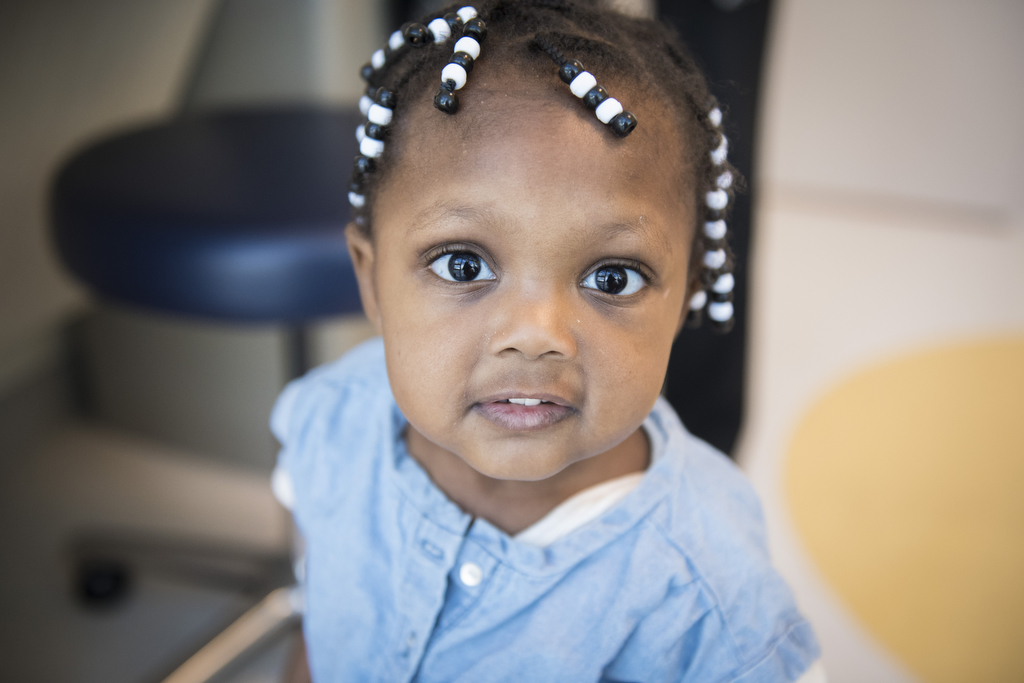
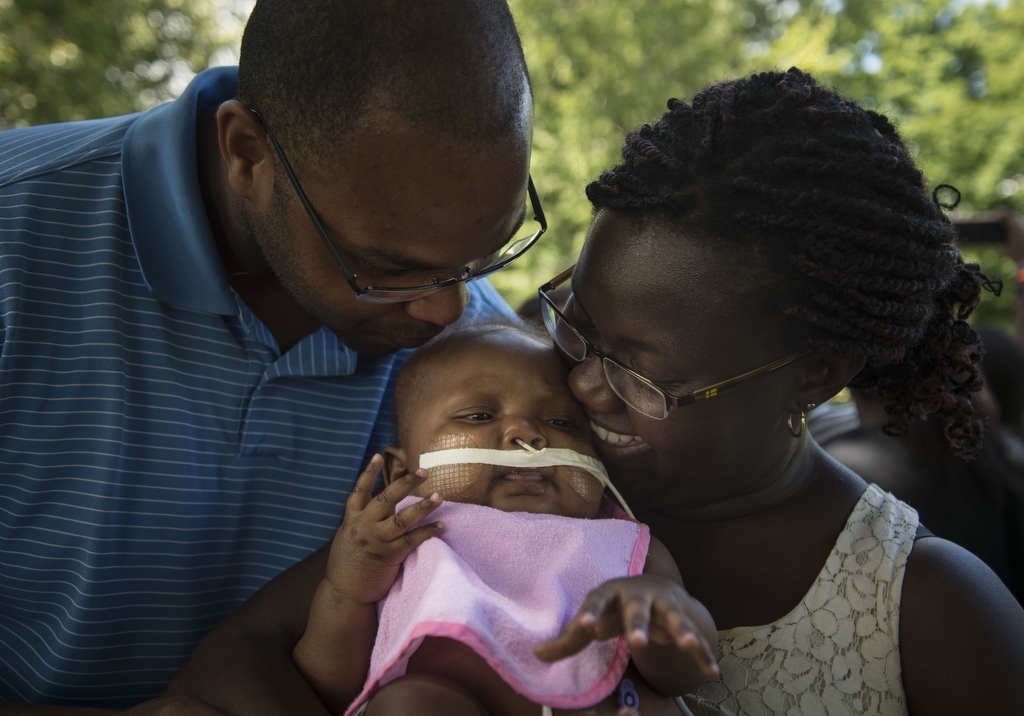
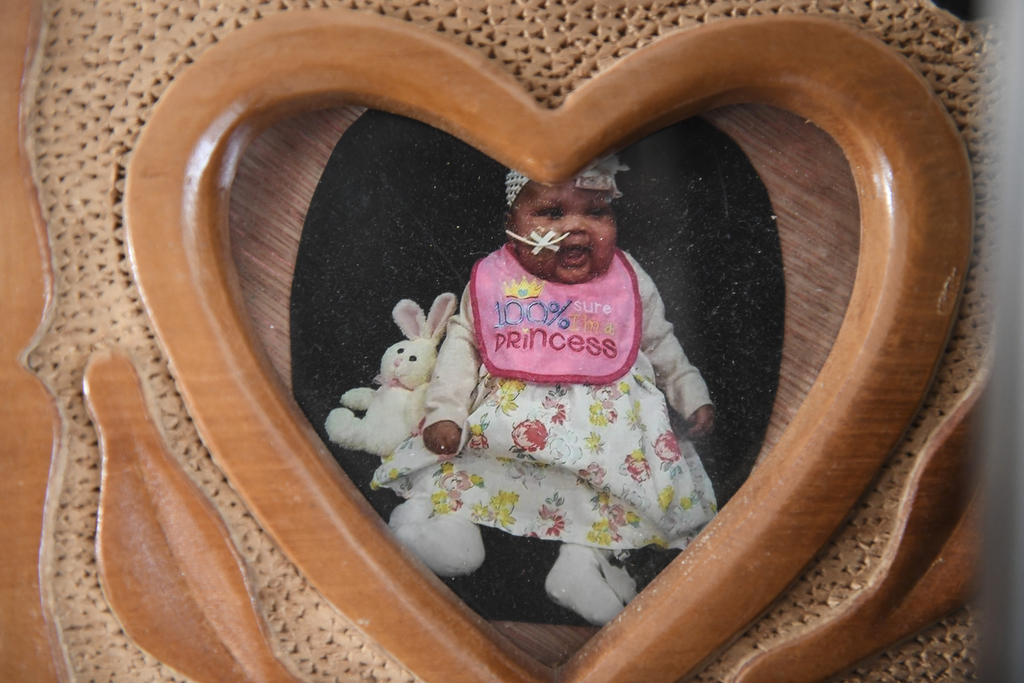
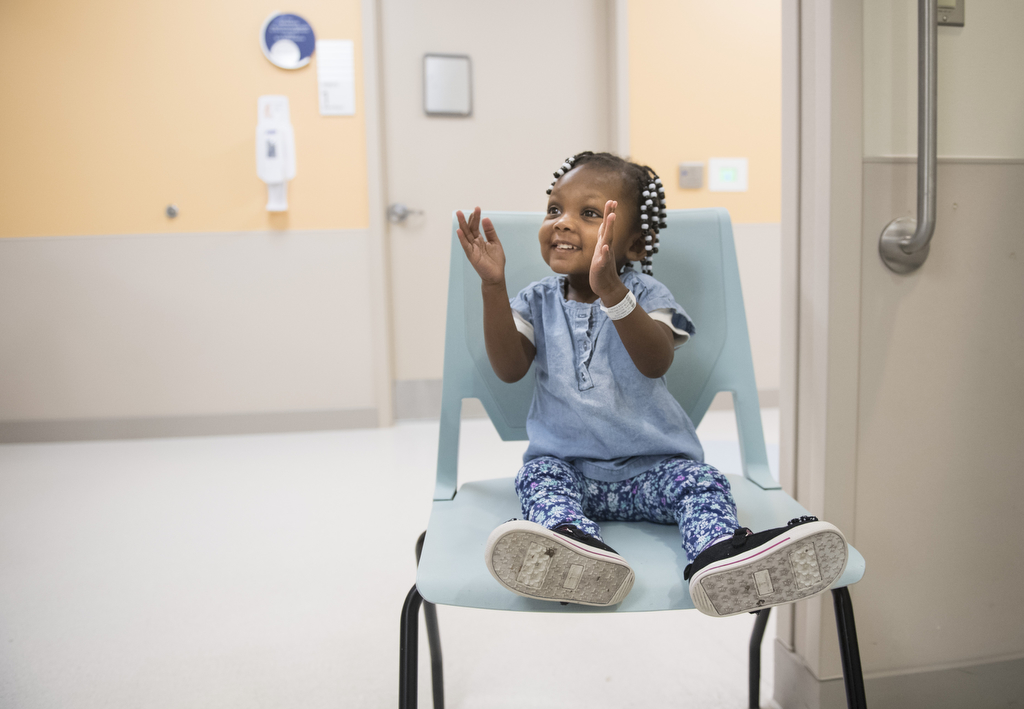
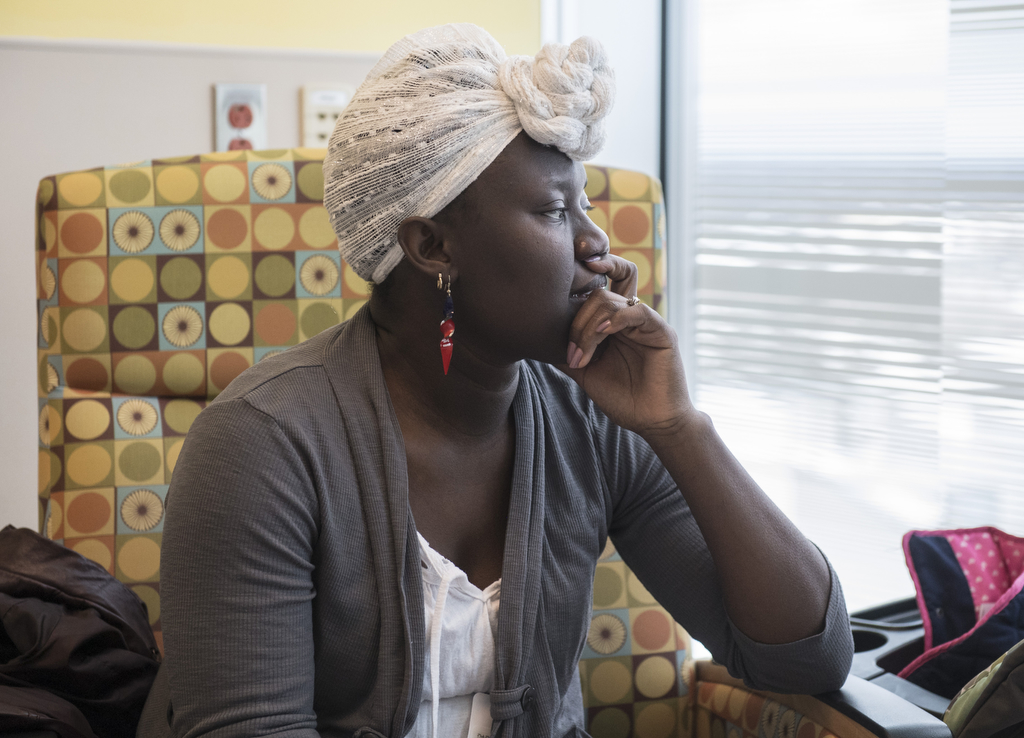
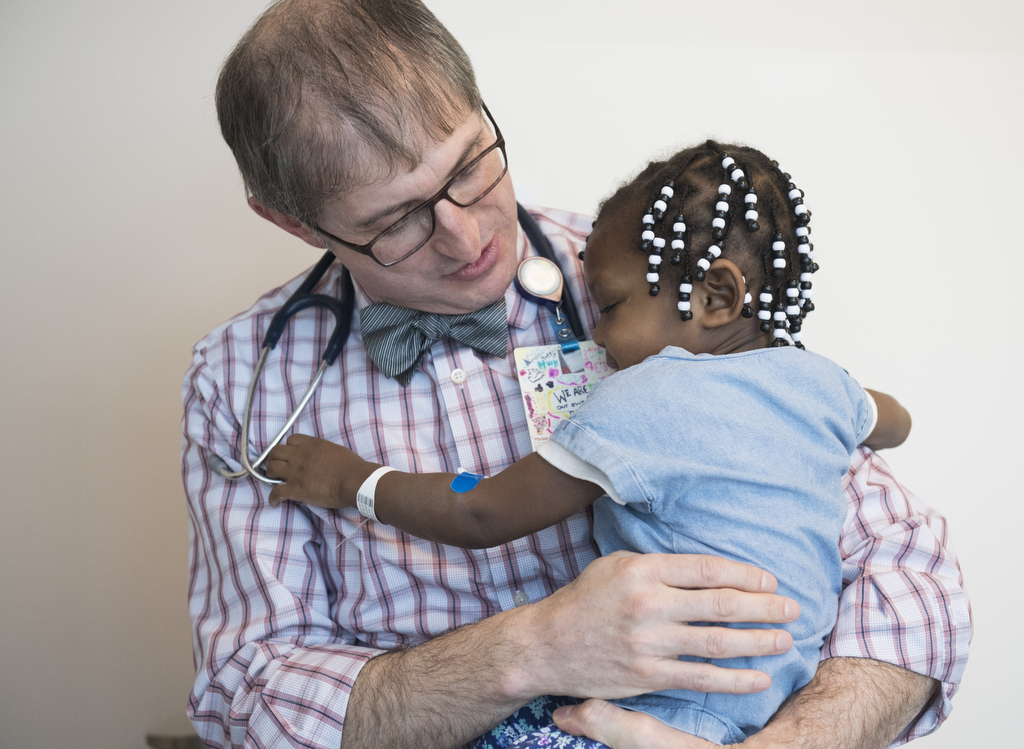
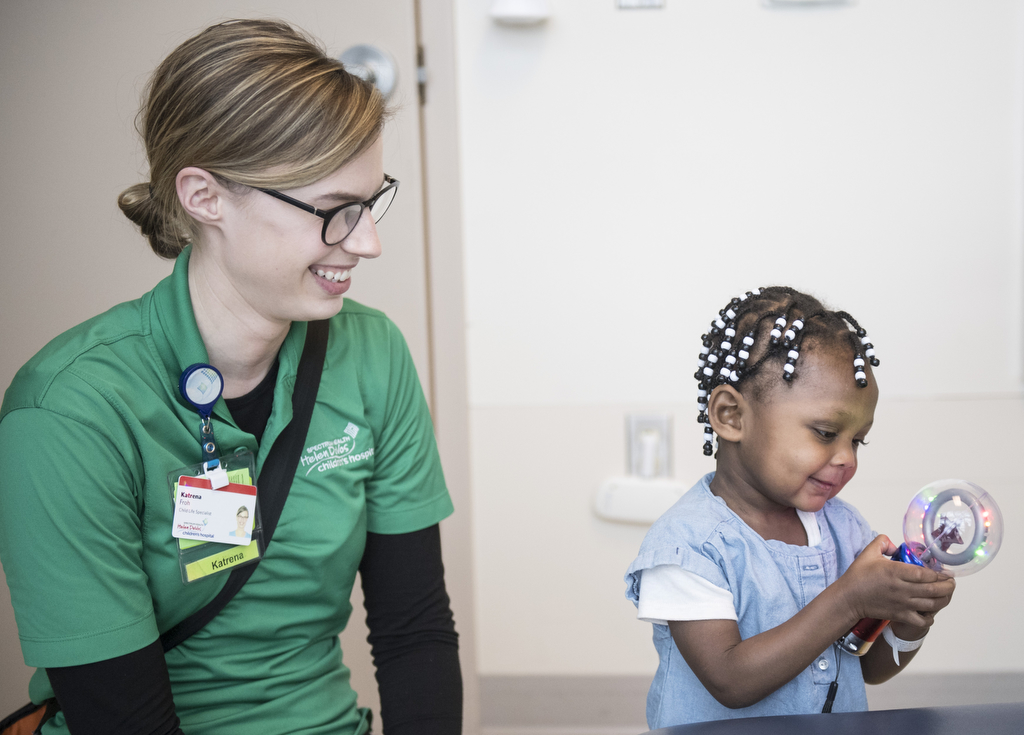
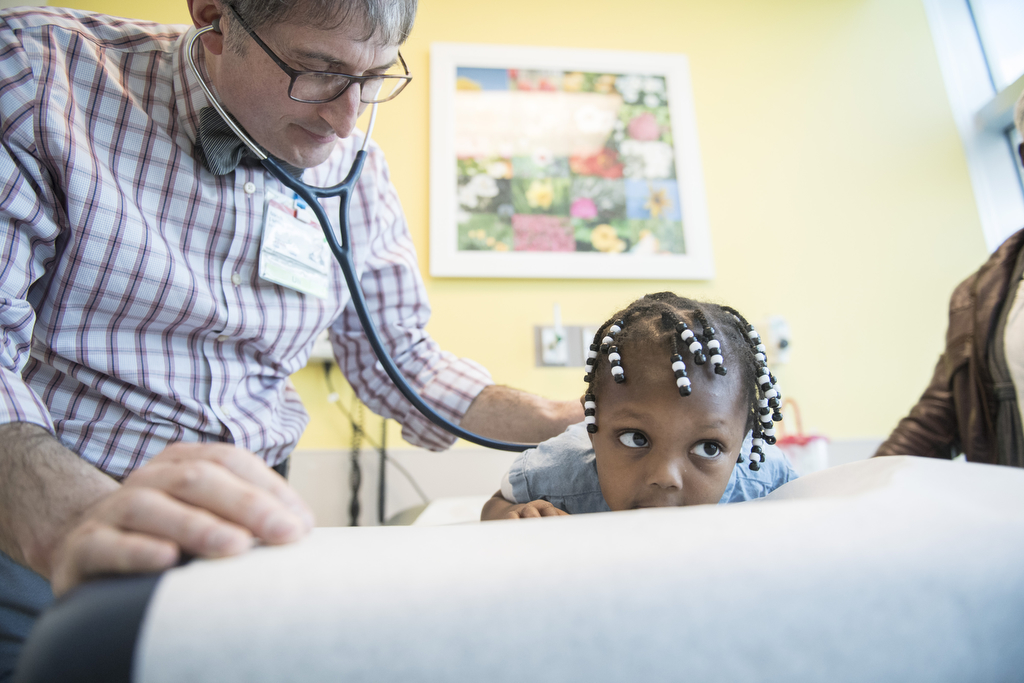
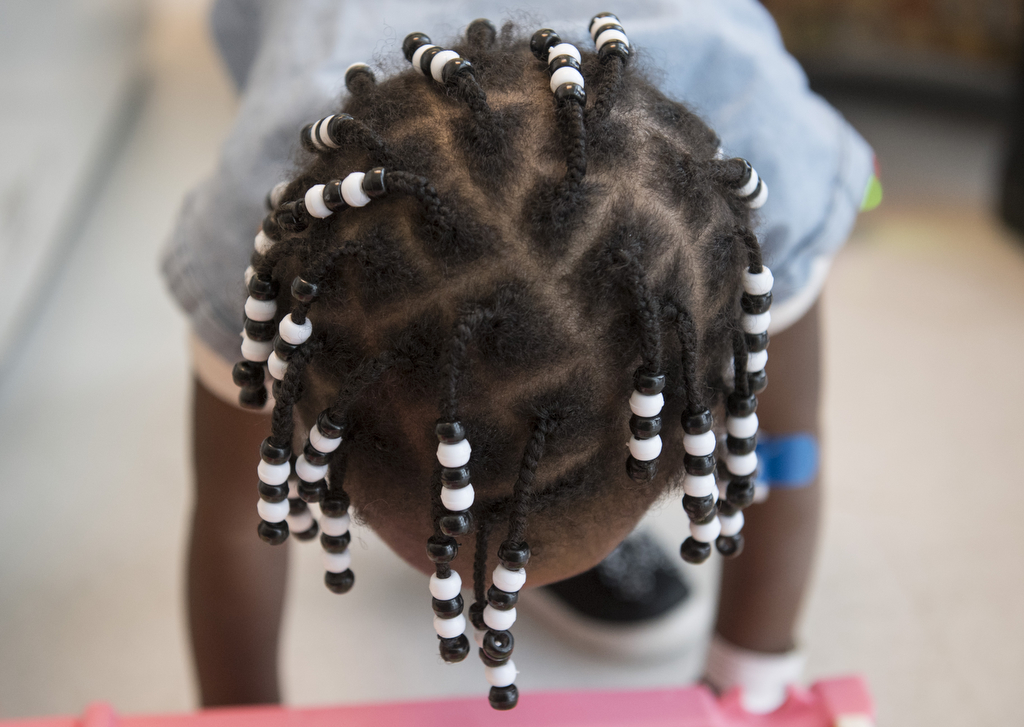
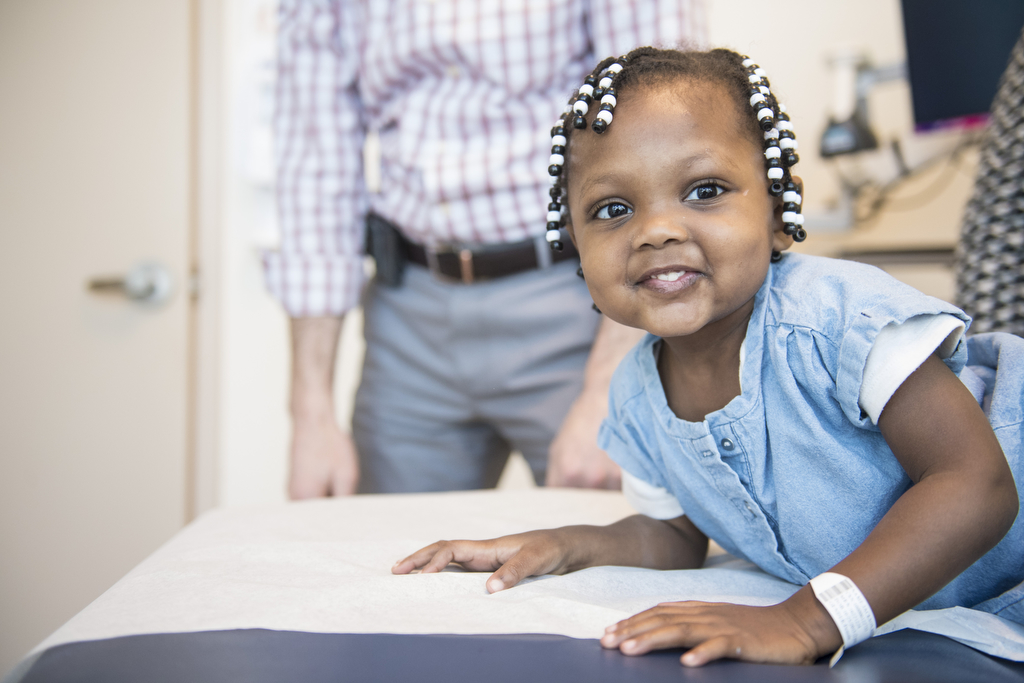
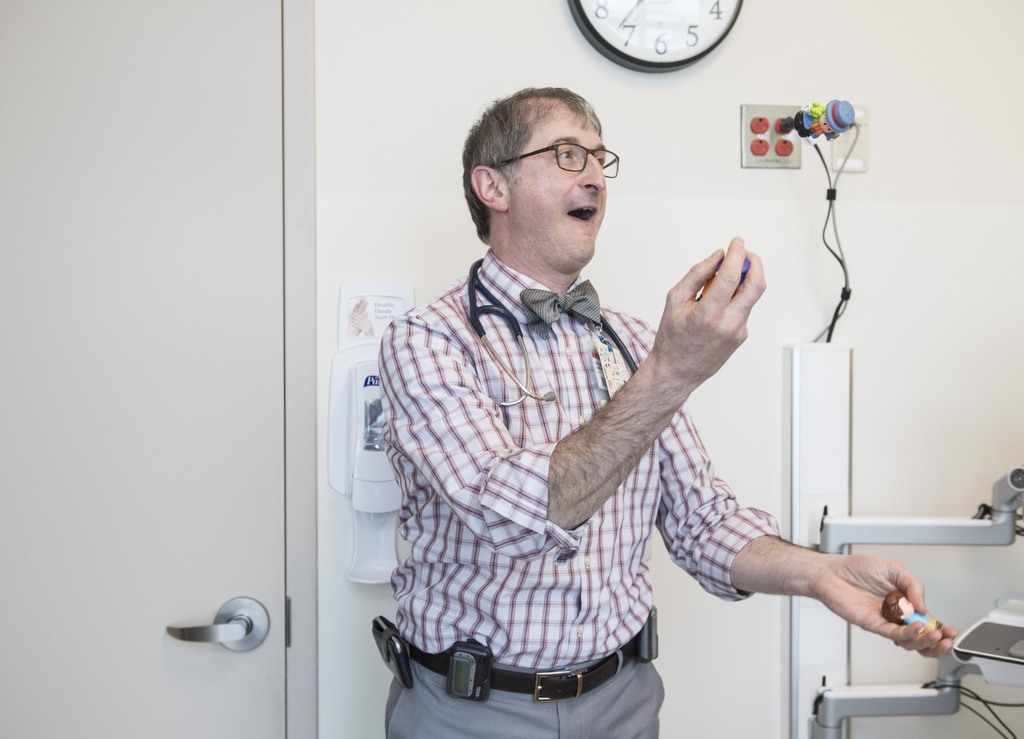
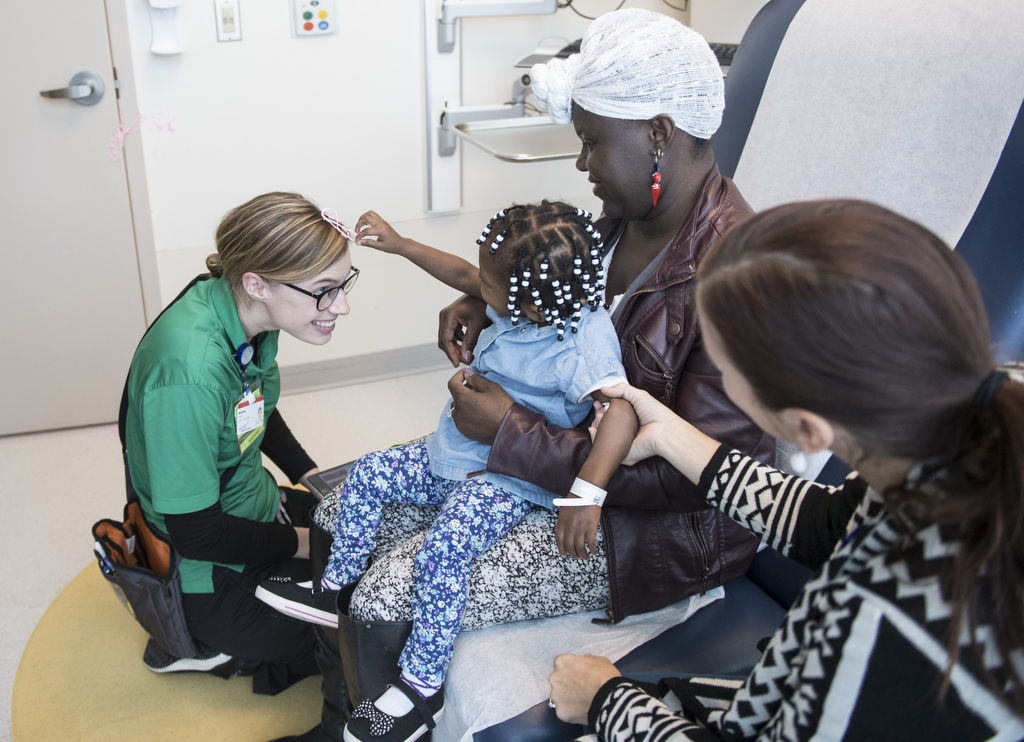
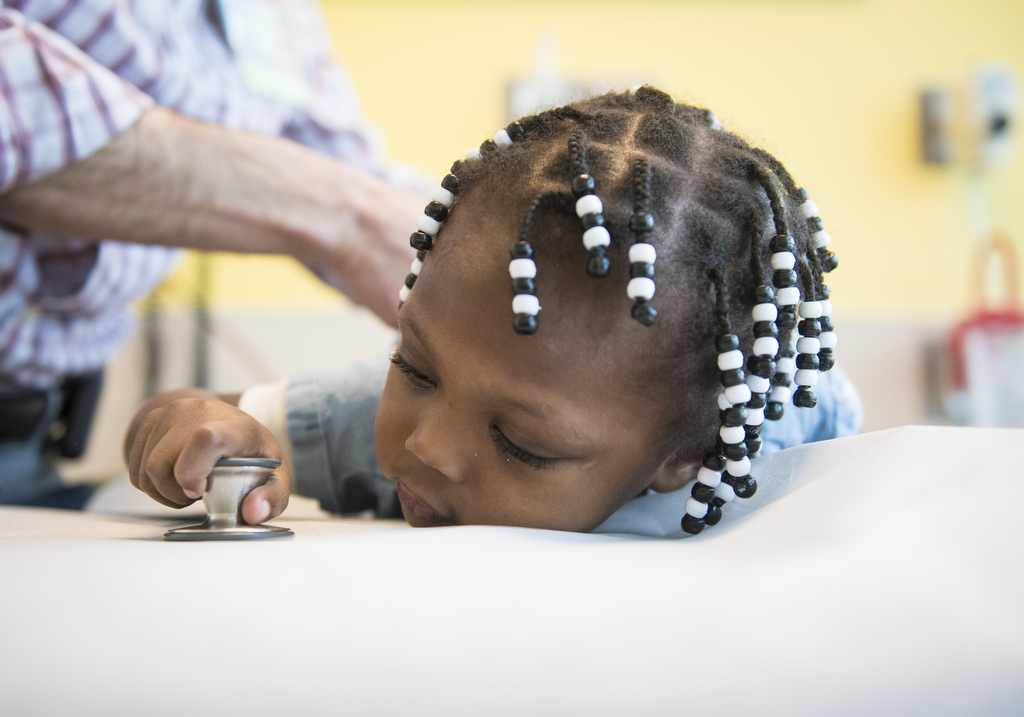
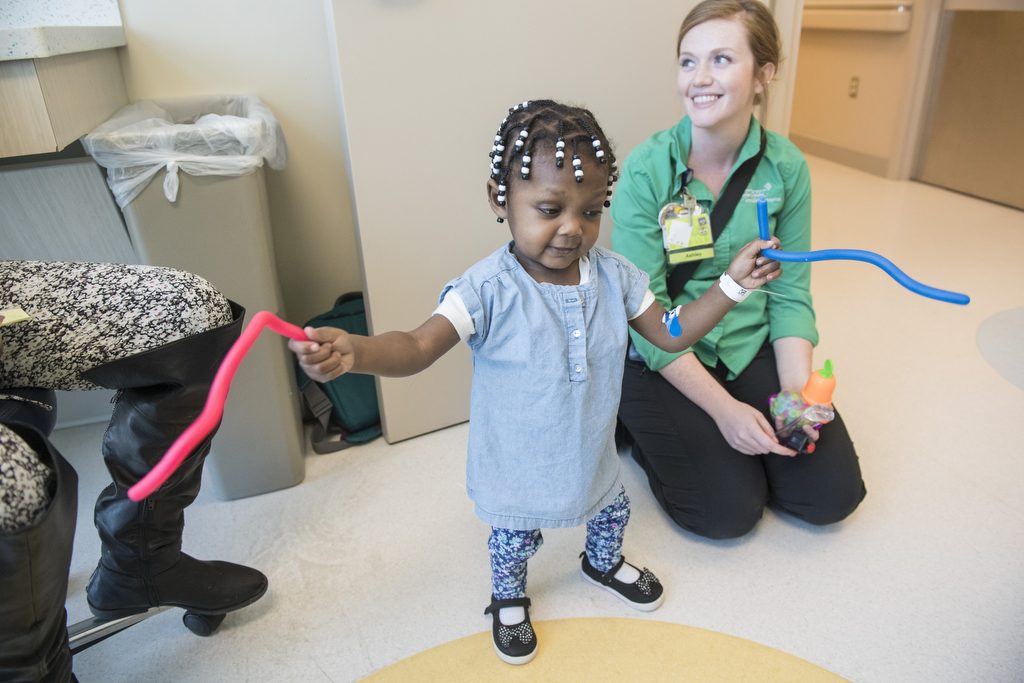
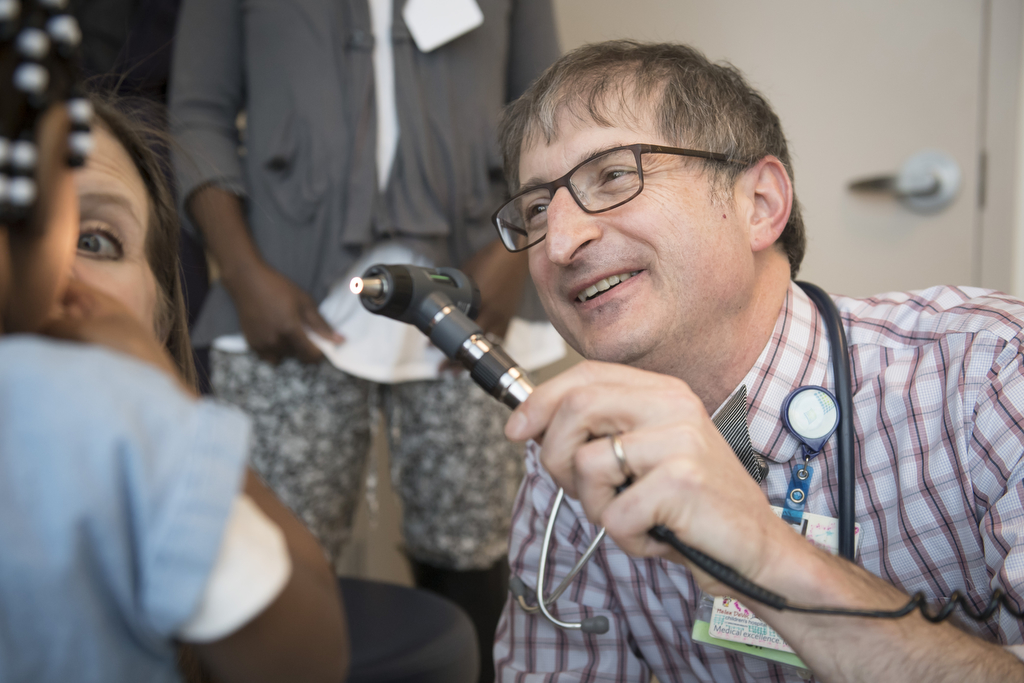
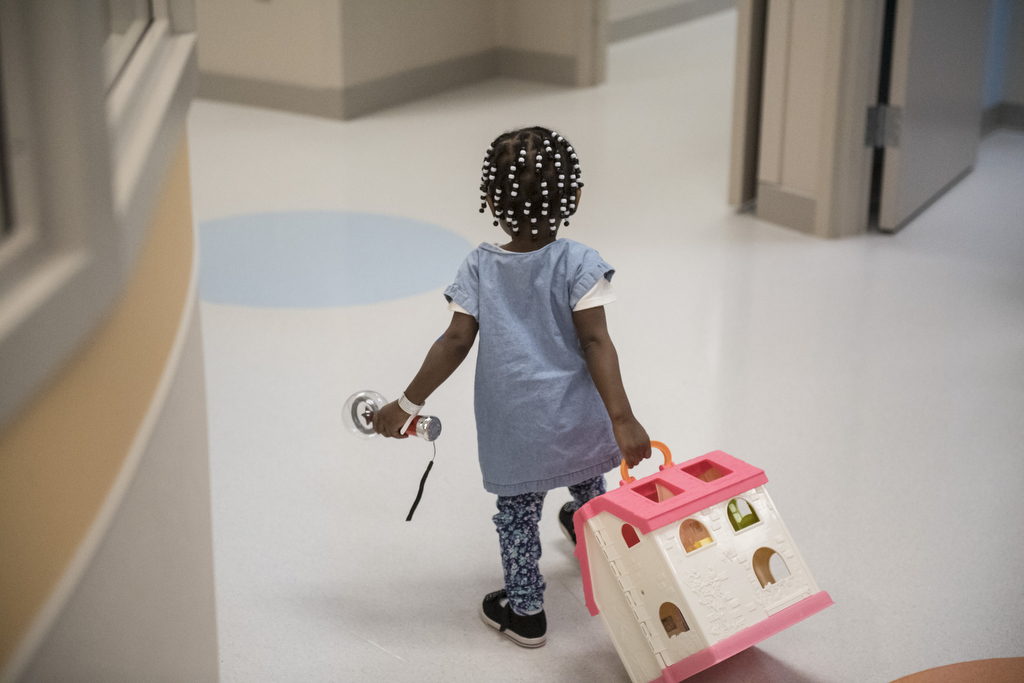
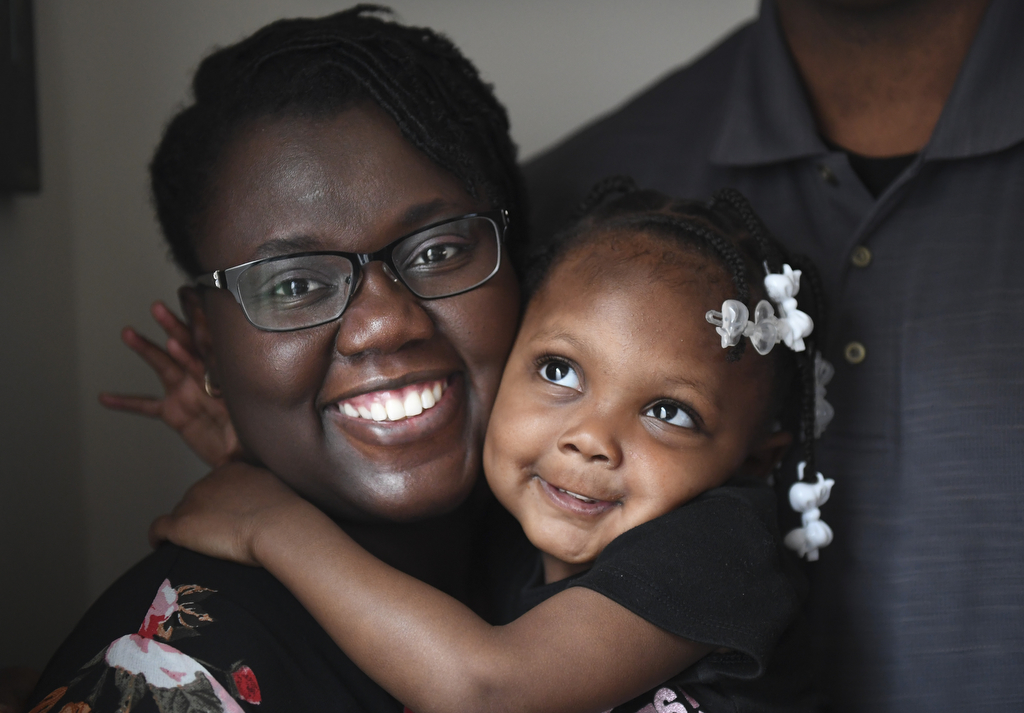
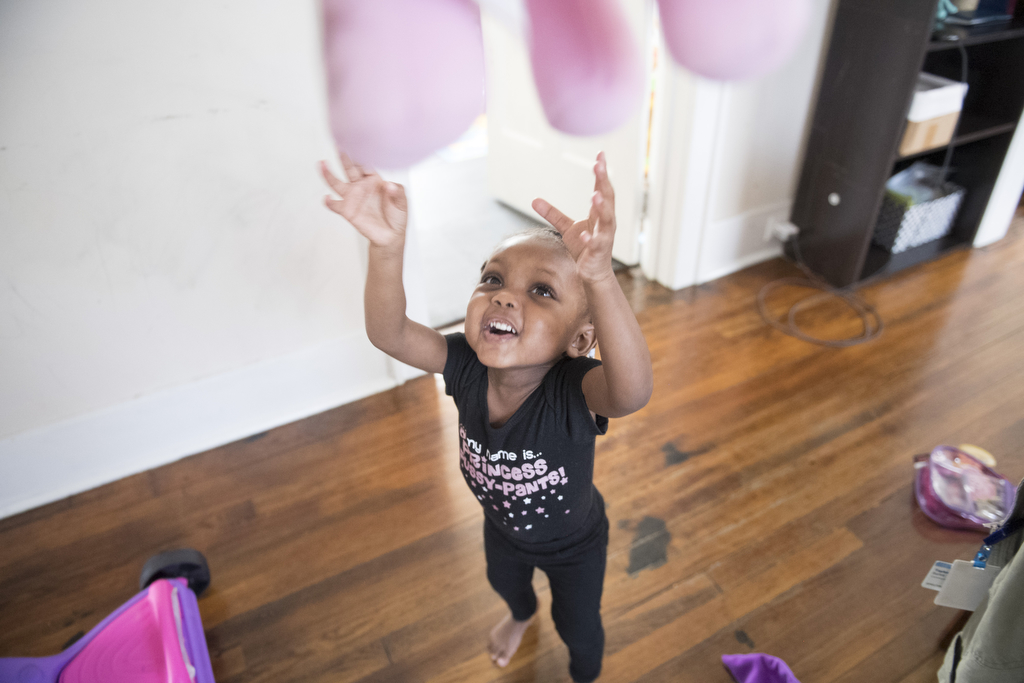
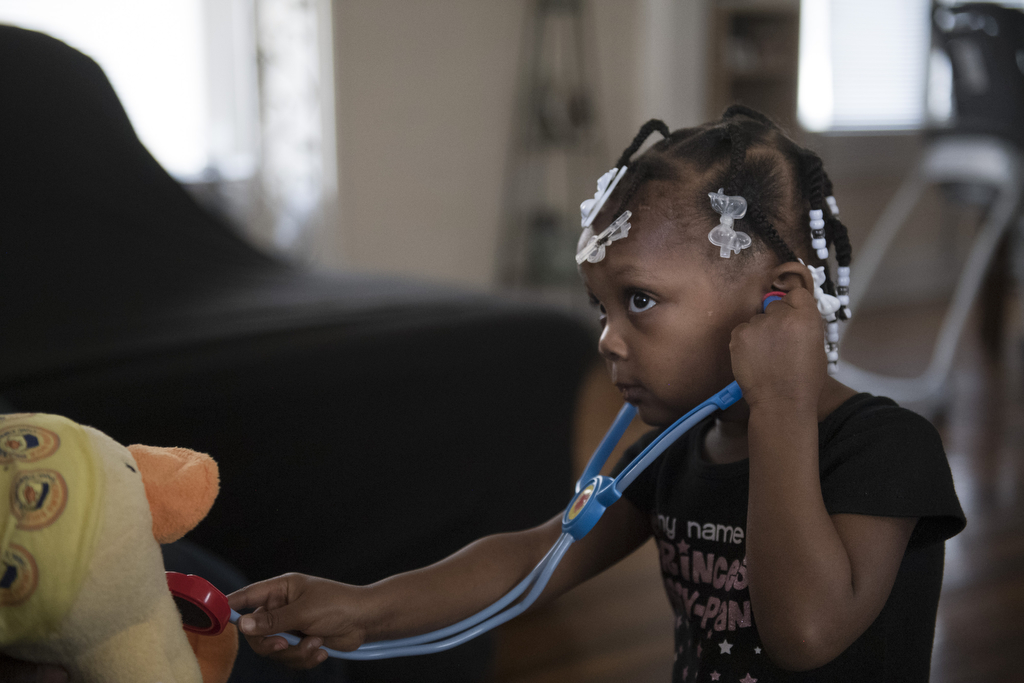
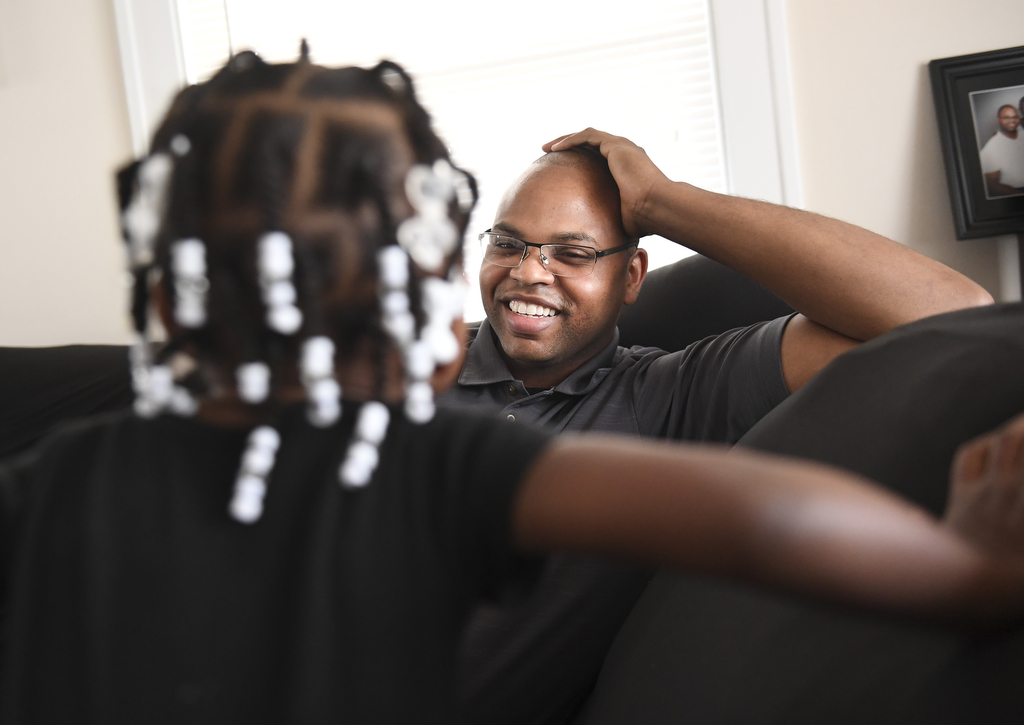
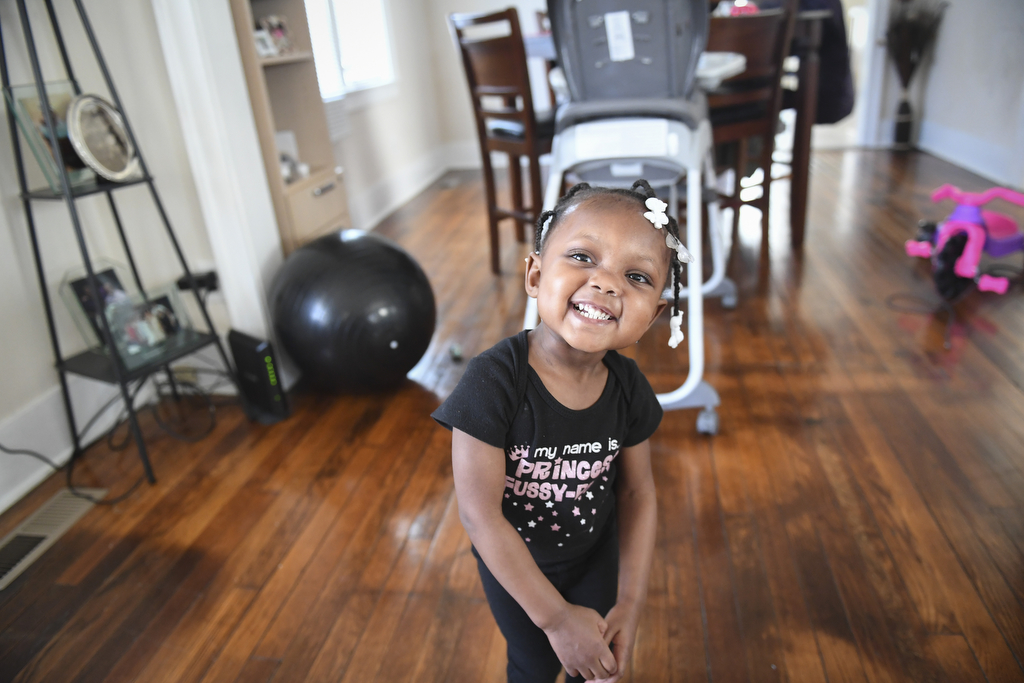
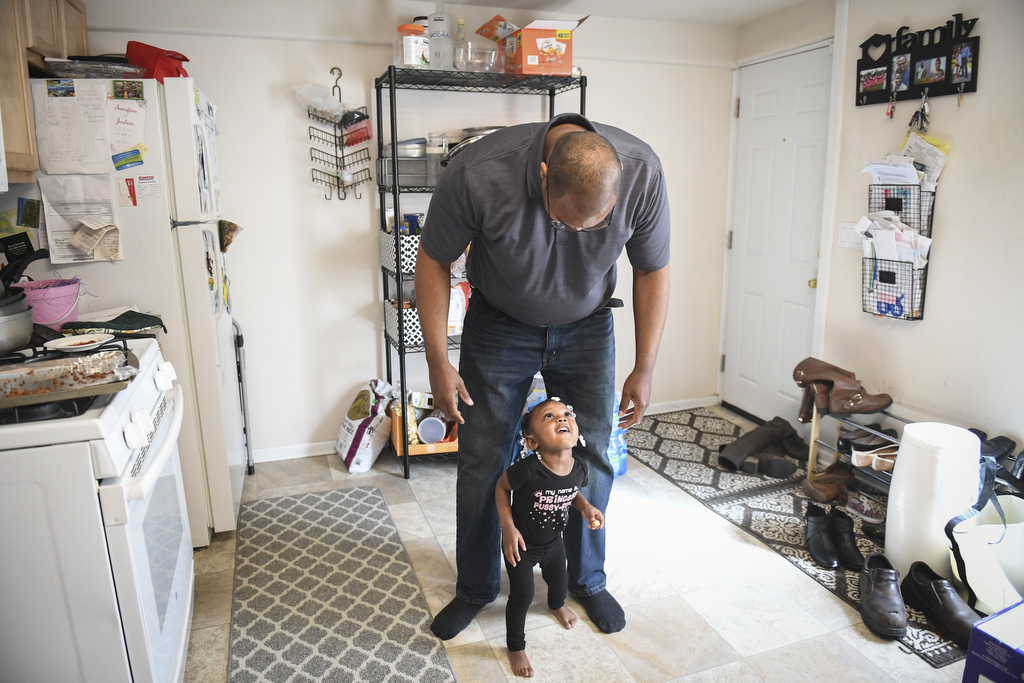
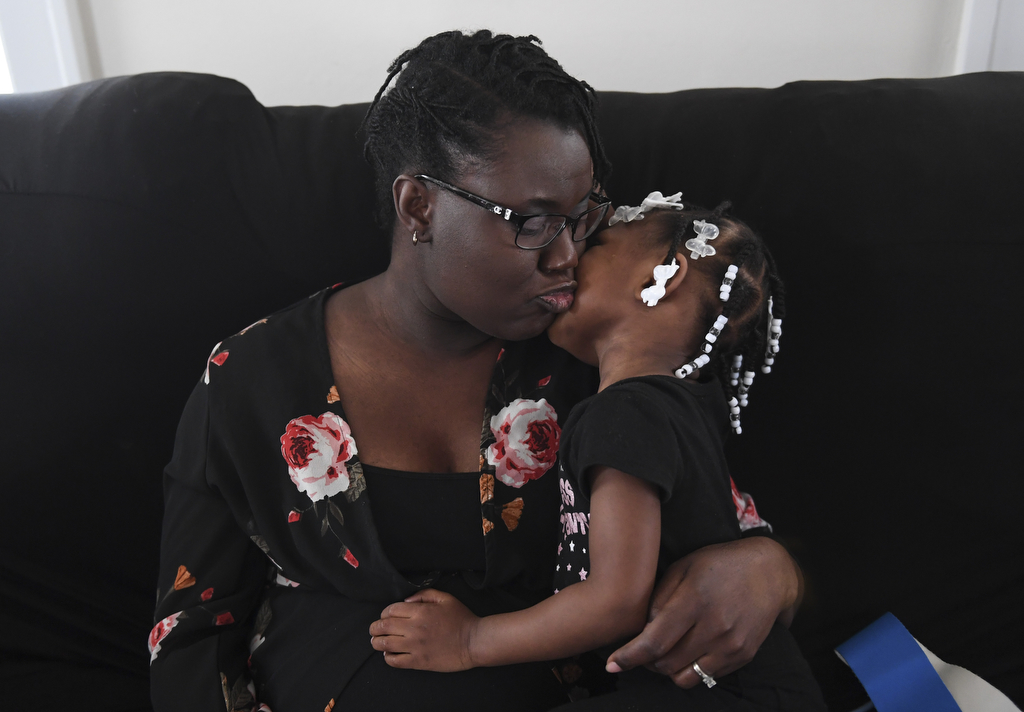
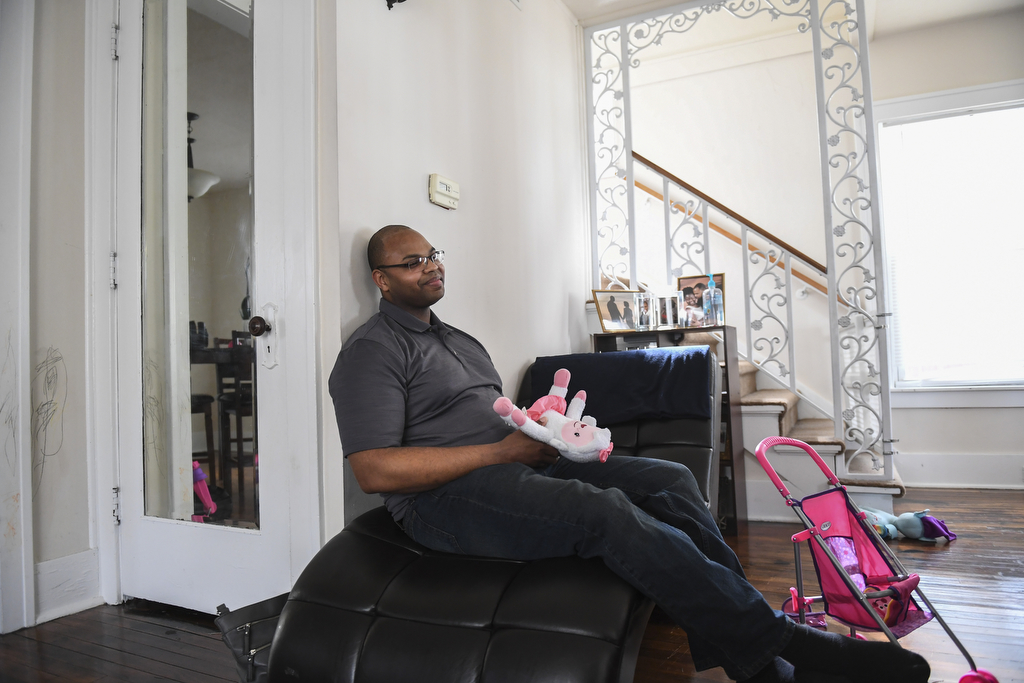
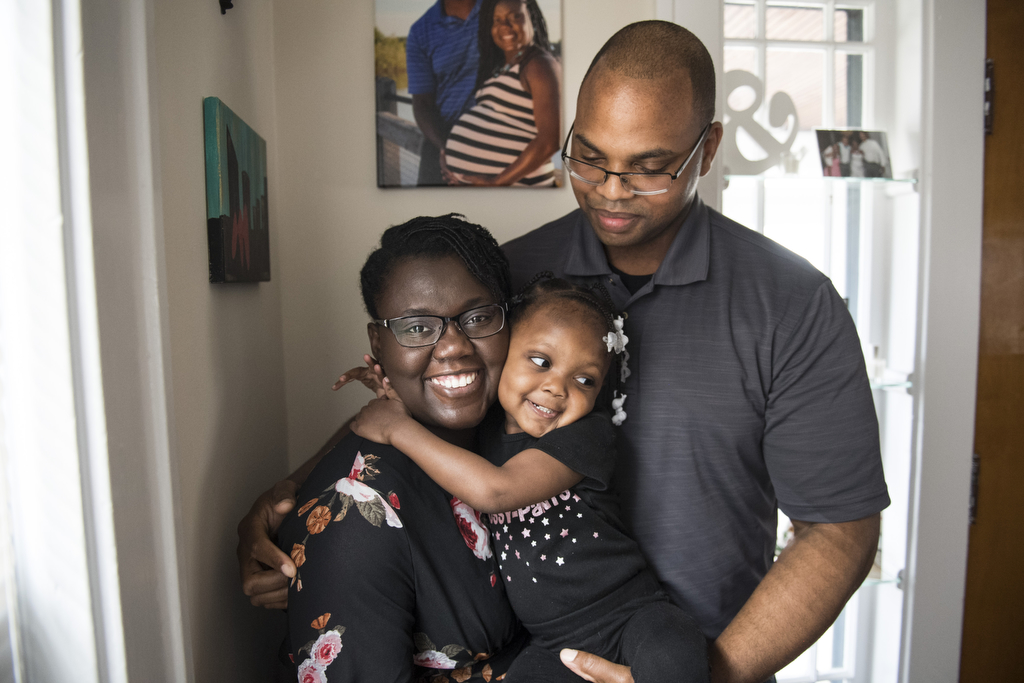
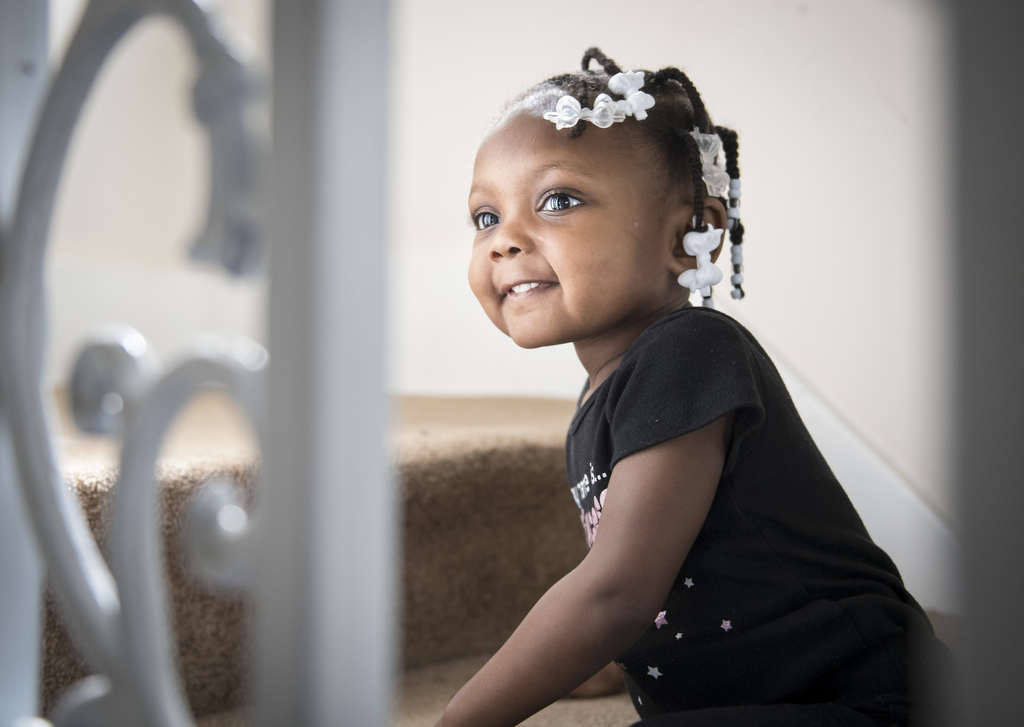
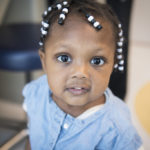
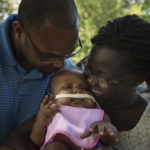
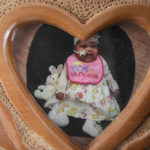
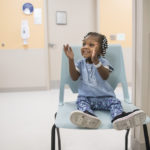
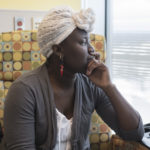
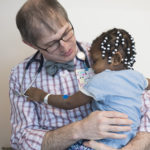





















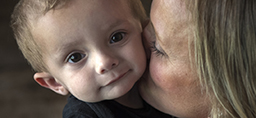 /a>
/a>
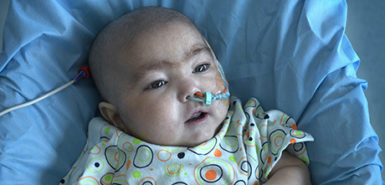 /a>
/a>
 /a>
/a>
She is sooo cute…adorable! 😊